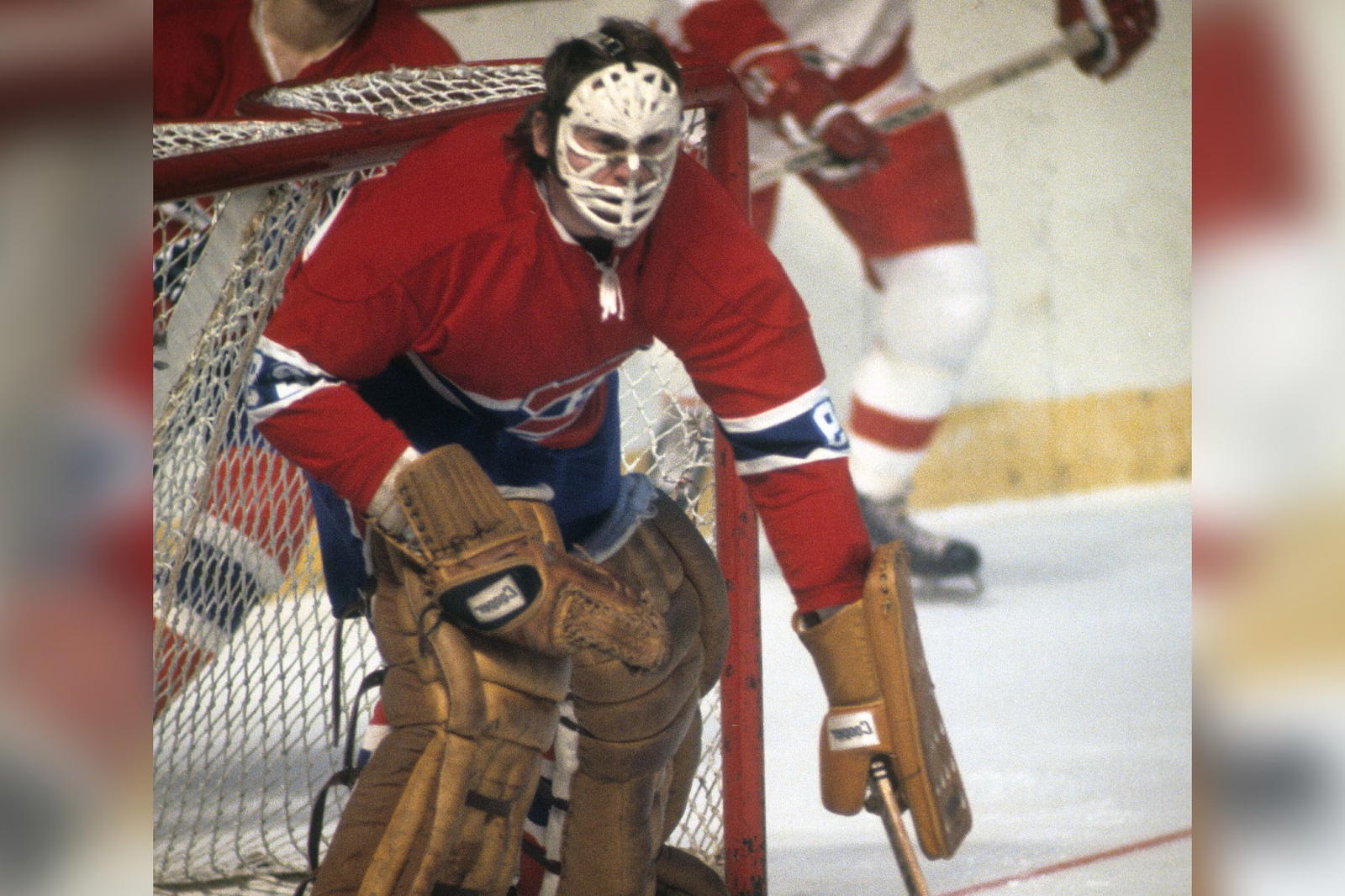Former Montreal Canadiens goaltender Ken Dryden has died after a battle with cancer, the team announced early Saturday.
The Hockey Hall of Famer, six-time Stanley Cup champion, best-selling author and former Canadian politician was 78. He passed away peacefully on Friday, the Canadiens said.
“Ken Dryden was an exceptional athlete, but he was also an exceptional man,” Canadiens president-owner Geoff Molson said in a news release. “Behind the mask, he was larger than life. We mourn today not only the loss of the cornerstone of one of hockey’s greatest dynasties, but also a family man, a thoughtful citizen, and a gentleman who deeply impacted our lives and communities across generations. He was one of the true legends that helped shape this club into what it is today.”
Dryden’s family asked for privacy at this time and suggested that those wishing to honor his memory donate to the Princess Margaret Cancer Centre or the Concussion Legacy Foundation.
Dryden was born on Aug. 8, 1947, in Hamilton, Ont. He grew up in the suburbs of Toronto.
“I never imagined I was going to play in the NHL,” he told Ken Campbell in 2018. “Growing up in Toronto and playing for Humber Valley, the NHL was just a different world. It was one that I loved to follow and watch, imagine and fantasize about and pretend that I was an NHL goalie, and all the rest of it, but never with the idea that I would be one. I just kept playing because I wanted to play, and no coach ever said, ‘Sorry, you’re not good enough,’ so it just kept going.”
The Boston Bruins drafted him 14th overall in 1964. Shortly after he was drafted, the Bruins traded his rights to the Canadiens.
Dryden played NCAA hockey at Cornell University between 1966 and 1969, being named the ECAC player of the year in 1968-69 and being a three-time first all-star team netminder in the conference.
In 1970-71, Dryden spent most of the season in the AHL before getting called up to the Canadiens to finish the regular season with his first six NHL games. He went 6-0-0 with a 1.65 goals-against average and .957 save percentage.
As Montreal matched up with the Bruins in the first round of the playoffs, Canadiens coach Al MacNeil chose rookie Dryden to play in goal. Each team traded series leads before the Canadiens forced a Game 7. Dryden stopped 46 of 48 shots in the series-decider to help knock out the squad that drafted him.
Dryden, who was 23 at the time, then backstopped the Canadiens to a 4-2 semifinal series win over the Minnesota North Stars before facing the Chicago Black Hawks in the Stanley Cup final. That series also went seven games, but Dryden outmatched eventual Hockey Hall of Famer Tony Esposito with a .921 SP in the final round. Montreal won it all, and Dryden earned the Conn Smythe Trophy as playoff MVP.
The following season, Dryden won the Calder Trophy after going 39-8-15 in 64 games with a 2.24 GAA, .930 SP and eight shutouts.
Before the 1972-73 season, Dryden was part of the historic Canadian team that faced the Soviet Union in the 1972 Summit Series. He split half of the eight-game series with Esposito, winning twice, including the deciding Game 8 in Moscow when Paul Henderson scored “The Goal” on Vladislav Tretiak at the other end of the ice.
“That series clearly and undeniably is the most important moment in hockey’s history. Not Canadian hockey history, but in hockey’s history,” Dryden told NHL.com in September 2022.
Then in 1972-73, he won not only the Vezina Trophy for the first of five times but the Stanley Cup for the second time in three years. He even co-wrote a book called Face-Off at the Summit with Mark Mulvoy detailing his account of the Summit Series, which was published in 1973.
Standing 6-foot-4, Dryden stood tall on the ice, literally and figuratively. He was also known for his iconic pose, where he put his hands on top of his stick and leaned forward during a break in the action.
Dryden took a break from hockey in 1973-74, when the Canadiens refused to rework his contract. Dryden retired and finished his law degree at McGill University before signing a new contract with Montreal in 1974-75.
From 1975-76 to 1978-79, Dryden helped the Canadiens win the Cup four straight times before retiring at 31 in 1979. He was inducted into the Hockey Hall of Fame in 1983. The Canadiens retired his No. 20 in 2007.
“Ken embodied the best of everything the Montreal Canadiens are about, and his legacy within our society transcends our sport,” Molson said. “On behalf of the Molson family and our entire organization, I would like to extend my most heartfelt condolences to his family, his friends, and all who had the privilege to cross his path and know him on a personal level.”
Added NHL commissioner Gary Bettman: “From the moment Ken Dryden joined the Montreal Canadiens as a 23-year-old rookie in 1971, he made an immediate and lasting impact on the NHL, the Canadiens franchise and the goaltending position.”
Bettman recalled Dryden’s career accomplishments and love for his country while also highlighting his accomplishments at Cornell, saying his career ranks among the greatest runs in collegiate hockey.
“On behalf of the National Hockey League, we mourn the passing of a legendary Canadian and extend our sincere condolences to his wife Lynda, family and many friends and fans all over the hockey world.”

After his playing career, Dryden wrote an account of the 1978-79 Canadiens in an enduring classic book, The Game, published in 1983. He not only painted a picture of his teammates, such as Guy Lafleur, Larry Robinson and Serge Savard, but he also reflected on playing the game on the ice, under the lights and more.
The author continued to write and co-write books, most recently publishing The Series: What I Remember, What It Felt Like, What It Feels Like Now to commemorate the 50th anniversary of the Summit Series in 2022. Another one of his books, Game Change, highlighted the risks and dangers of head injuries by talking to former players and neurobiology experts before outlining a plan of action.
Dryden was appointed Ontario’s first youth commissioner in 1984.
Dryden also worked as a hockey commentator at the 1980, 1984 and 1988 Winter Olympics, including the “Miracle on Ice” game between the United States and Soviet Union in 1980.
From 1997-98 to 2002-03, Dryden was president of the Toronto Maple Leafs.
Then in 2004, he became a federal politician.
Dryden ran as a member of the Liberal Party of Canada in the Toronto riding of York Centre, getting elected on his first try. He served as the minister of social development under prime minister Paul Martin between 2004 and 2005. He won again in the 2006 and 2008 elections before losing his seat in 2011.
In 2012, Dryden was awarded the Order of Canada for contributing to the sport of hockey and to public life. He was also a teacher at the University of Toronto and McGill.
“Deeply saddened to learn of the passing of the Hon. Ken Dryden, a Canadian hockey legend and hall of famer, public servant and inspiration,” Canada’s current prime minister, Mark Carney, wrote in a statement to social media early Saturday.
“Ken Dryden was the reason I became a goalie, although I never mastered his ability to lean on his stick let alone keep the puck out of the net. His return to university at the height of his playing career taught the importance of balance in life. His post-hockey career demonstrated the value of public service. Few Canadians have given more, or stood taller, for our country. Ken Dryden was Big Canada. And he was Best Canada. Rest in peace.”
Read the full article here


